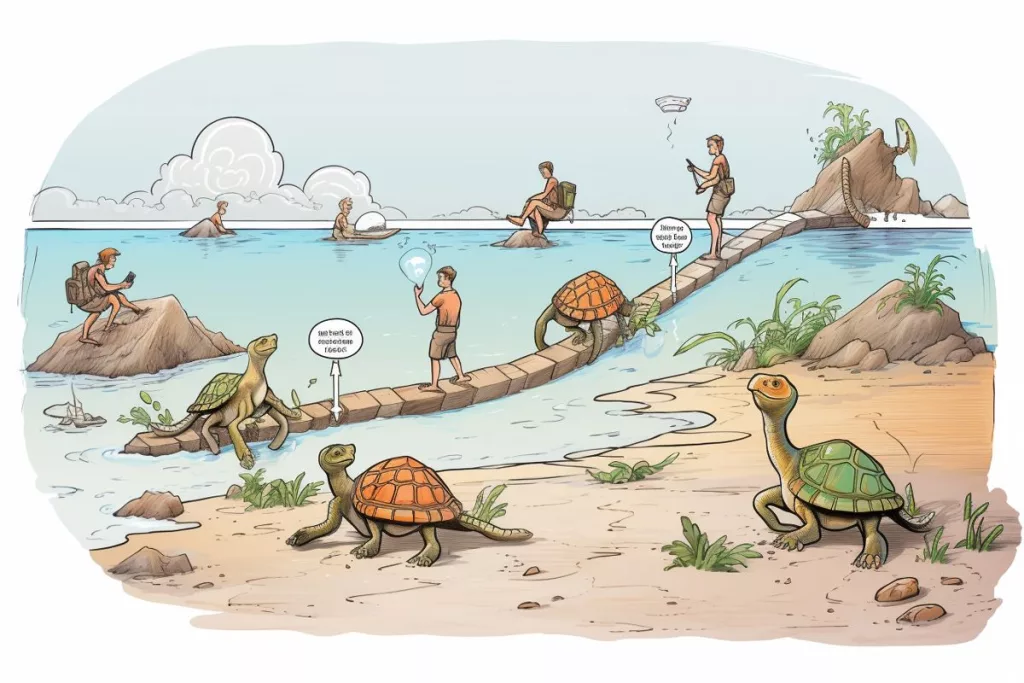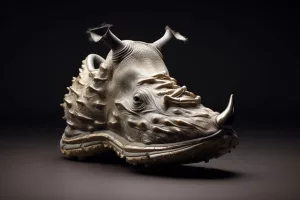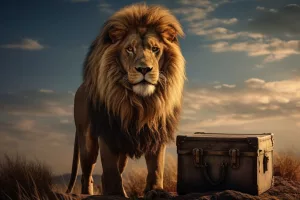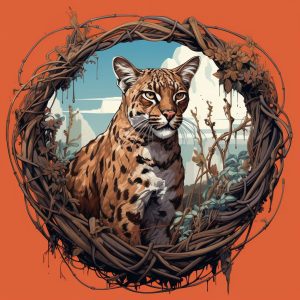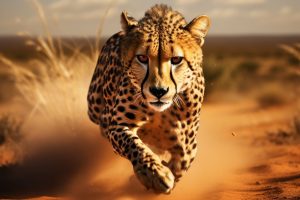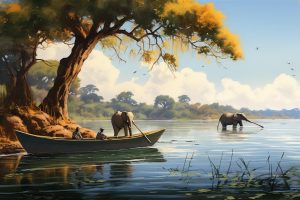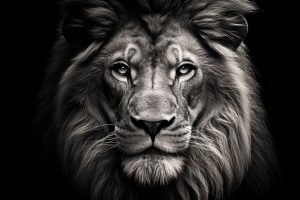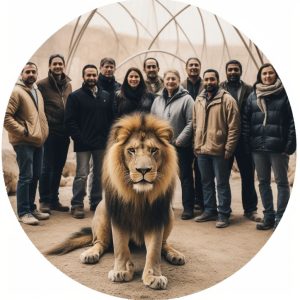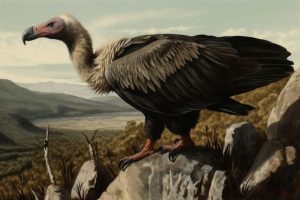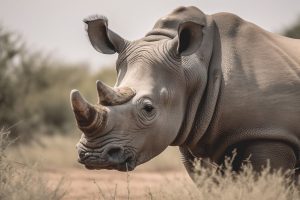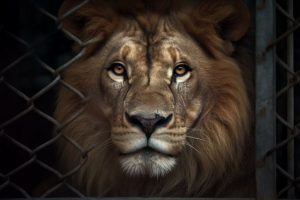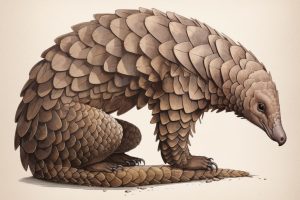Nori the Green Turtle is a symbol of hope and resilience as she undergoes recovery and rehabilitation at the Two Oceans Aquarium in Cape Town. After being saved from a coastal town, Nori displayed positive physical indicators but soon showed symptoms of stress that puzzled the turtle specialists. Through a strategic shift and introduction of sensory and feeding enrichment activities, Nori’s stressrelated behavior ceased, and a considerable improvement was observed. Nori’s rehabilitation journey now finds her in the I&J Ocean Exhibit, providing visitors with an opportunity to view and appreciate wildlife conservation efforts in realtime.
Run For Rangers is an annual event that promotes unity and compassion with game rangers who protect endangered species worldwide. The event involves completing a 100 km course over two days in a challenging terrain that requires fortitude and collaboration. The participants raised over R600,000, highlighting the power of sports in uniting people for a noble cause. The event serves as a compelling example of the potential in collaboration and community involvement for wildlife conservation.
The Lion Protection Fee is a proposed fee to be imposed at border entry points in South Africa, with the proceeds going towards wildlife conservation. It could potentially replace revenue from trophy hunting, with lions chosen as the primary focus. Researchers have found that the funds raised from the Lion Protection Fee could potentially match or even exceed the current revenue from trophy hunting in the country. This approach offers an opportunity to reshape conservation strategies in South Africa and move towards a more sustainable and compassionate future.
A Milestone in Animal Rights: Sentencing and Rehabilitation for Cape Fur Seal Attackers
In a landmark ruling for animal welfare, four men who savagely attacked a Cape fur seal have been sentenced to six years in prison, suspended for five years, with rehabilitation conditions aimed at educating and reforming the convicts. The incident highlights the need for public awareness and education on wildlife conservation and the importance of animal rights. The sentencing, which includes community service, financial contributions, and a 500word essay on marine mammals, aims to instill compassion and responsibility towards all living beings.
The Western Cape region of South Africa is facing a growing issue of illegal snaring. This practice involves using traps to catch wild animals, which poses a significant threat to the area’s wildlife, including top predators like leopards and caracals. Despite being illegal under the province’s Nature Conservation Ordinance since 1974, conservationists have observed increased usage of these traps, particularly in the Boland region.
Wildlife conservation is an everchallenging field where every discovery counts. Recently, a wild cheetah sighting in Djibouti, after over 30 years, brought smiles to the researchers involved in a biodiversity survey. However, this discovery is just the beginning of a long journey towards cheetah conservation in East Africa.
Entrepreneur and Virgin Group founder, Sir Richard Branson, has recently returned from an exciting journey to Zimbabwe. Branson has a deep affinity for the country and is known for his dedicated advocacy for wildlife conservation. Branson’s visit to Zimbabwe has sparked interest and curiosity, and he has contributed towards the protection of Zimbabwe’s fauna.
Lion farming in South Africa is a contentious issue that has been in existence since the 1990s. This industry involves breeding lions in captivity for various purposes, including entertainment, canned trophy hunting, and traditional medicines. However, the industry has gained notoriety due to illegal activities such as exporting lion bones, leading to a significant rise in poaching and illegal trafficking. Wildlife researchers Neil D’Cruze and Jennah Green have expressed their concerns about the lion farming industry and advocate for its closure.
The Ministerial Task Team (MTT) has called for captive lion owners who are interested in voluntarily exiting the captive lion industry to register their interest. This move is part of a broader effort to end the commercial use of captive lions and their derivatives.
In a groundbreaking operation, a starving vulture received the world’s firstever beak transplant on a bird of prey, allowing it to feed once more. ## The Procedure
In 2021, four friends from Kenya embarked on a unique expedition to raise funds for wildlife rangers by traveling 23,000 kilometers in two tuktuks from Kenya to Cape Town. The journey, which was projected to take three months, turned into an 18month odyssey of discovery, resilience, and connection.
Rhino poaching continues to be a critical issue in South Africa, with the country being home to more than 80% of the world’s remaining rhino population. The illegal trade in rhino horns, fueled by demand in Asian countries where it is believed to have medicinal properties, has continued to thrive, despite efforts to curb it.
A recently released promotional video has caused outrage by showcasing the brutal and inhumane nature of “canned” lion hunting in South Africa. The video reveals a male captivebred lion being attacked by a crossbow and shot multiple times by professional hunters. The video arrives just before the anticipated phasing out of the captive lion hunting industry and highlights the need for change to protect animal welfare.
Pangolins, also known as scaly anteaters, are fascinating creatures that remain unknown to most people. These unique animals constantly struggle for survival as they are the most trafficked mammal globally. ### Pangolins: A Unique Species
In a stunning show of bravery and expertise, Taru CarrHartley and his brother Roan, both wildlife conservation fliers, rescued a truck driver stranded in a crocodileinfested river for over six hours. The incident took place in Tsavo East National Park, Kenya, during a flash flood that caused the driver’s fully laden tanker to be swept away and overturned.
Cape clawless otters are one of the most endearing creatures on South Africa’s coastlines. These shy, nocturnal, and diurnal animals, slightly larger than one might expect, are the largest freshwater species after the South American otter. Unfortunately, their population is slowly decreasing, and they were listed as near threatened by the International Union for Conservation of Nature (IUCN) in 2014. However, their playful nature and endearing appearance make them a favorite among locals and tourists.


